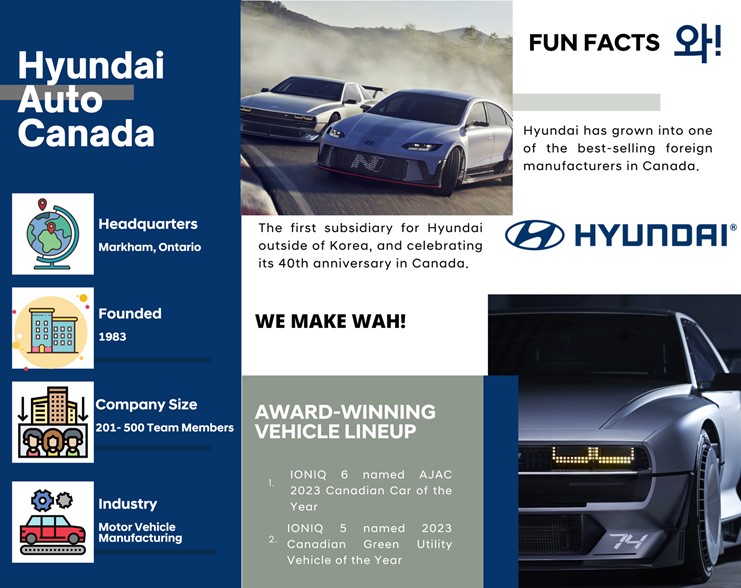
Kirk Merrett sits down with HRD to debate changing face of industry in 2024

It’s time to throw out the archaic notions of a pen-pushing HR practitioner – and say hello to the organizational-centric leader of 2024.
It’s time for HR professionals to have a direct impact on culture, says Kirk Merrett, the director of HR at Hyundai Canada, in talking to HRD.
“If the progressive, engaging company culture you want to build is on the land across the water, then HR is the navigator of the canoe that will take you there,” he says. “We can influence the speed of the paddling, we can try to steer it in a certain direction, but it only works if company leadership is onboard and paddling in the same direction.”
At Hyundai, Merrett has invested in innovation as a means to stay relevant. One of the ways his HR team does this is through volunteering initiatives - where teams select a charity to support hands-on, fostering team building while giving back to the community.
The second is a speed networking program, connecting potential candidates with multiple managers to provide exposure to the organization. The networking sessions have proved a beneficial resource, after the successful hiring of a number of candidates from those pools, which Merrett says has been a “tremendous addition” to the company’s recruiting efforts.
It’s these hiring efforts that won’t go amiss in the current market. A report from 2024 Hudson found that 80% of employers are still struggling to find the talent they need, with threequarters of global employers grappling with a competitive market. Luckily for Merrett, Hyundai’s attractive culture and values system is based on one overarching element – fun. And it’s certainly working, as Merrett tells HRD that Hyundai scored a staggering 93% for ‘a fun place to work’ in the Great Place to Work global survey.
HRD recently spoke with Atlanta Braves' chief culture officer on making 'game day decisions'.
"We base our culture on a foundation of fun," Merrett says. "Competition creates fun opportunities. It never gets too serious for people to have a laugh.”
All of this culture is built on the back of HR’s role as a strategic business partner. Merrett emphasizes the importance of understanding the business’ core strategies, challenging the prevailing notion that employee engagement is not always treated as a business objective - underscoring the need for organizations to invest in their most valuable resource: their people.
"HR needs to understand so that we can better support the business," he says. "Employee engagement is strongly correlated to higher operational and personnel performance.”
Alongside the prioritization of understanding these core strategies, Diversity, Equity and Inclusion also emerge as key priorities for Merrett. He dismisses the idea that DEI is a fleeting trend and stresses the continuous nature of DEI efforts, recognizing its impact on attracting top talent and enhancing overall business performance.
"It's not a fad,” Merrett says. “It needs to be a business strategy. Culture fit is a thing of the past - we need to think in terms of culture add, which is not a new idea but it's so important. We need not to ask if the candidate will fit in but instead how they can add to the team. We need to ask ourselves, ‘What skills and viewpoints are we missing on the team? Do they really need to be able to talk about the hockey playoffs to succeed on the Hyundai team?’ And that answer has to be no.”
HRD recently spoke with Microsoft Canada’s HR head on why it's important to stay humble
And this switch in approach towards a more holistic hiring plan is certainly gaining momentum post-pandemic. Skills-based hiring has skyrocketed in the past few months, with data from McKinsey finding that hiring for skills over education is five times more predicative on overall job performance and success. What’s more, three-quarters of employers would be willing to hire someone without all the necessary skills for the role at hand – but rather for their potential.

And this all begins with HR.
“HR has to be a business partner – and to be a business partner you need to understand the business,” says Merrett. “That doesn't necessarily mean understanding everything about the organization. I'm not a car person, I couldn't tell you how an engine works, but I do know our business and what our customers expect and deserve from Hyundai.
“There are core business strategies HR needs to understand so that we can better support the business and the business strategy. And so if your organization is not treating it as a business objective, then you're not getting that necessary attention to employee engagement.”